(Tony Karumba/AFP/Getty Images)
June has become the annual rainbow-themed moment for big brands, however, Pride month is more than just a reason for the LGBTQIA+ community to wave their flags until the first of July … when all the “support” is packed away for the next bandwagon event for brands to throw marketing budgets at.
As the world tries to grow more supportive of the queer spectrum, it is important to remember those who came before and paved the way for 21st century queer folk to live in a better, safer society for gender and sexualtiy expression. For a long time, the position of queer icons in the media was reserved for gay (often white) men more than any other member of the LGBTQIA+ community: bisexuals, asexuals, intersexuals, lesbians, pansexuals, even polyamorous folk.
Everyone in the community has personal icons and shared icons they look at to navigate their identities throughout the queer experience. Some are more notable and obvious, others more lowkey, yet serve nonetheless.
Being a young women who identifies as bisexual, navigating a sense of “imposter syndrome” in the LGBTQIA+ community about who is a queer icon and why, is something that is deeply personal yet shared, adds to the validation that comes with being part of a community.
Material Gworl: Saucy Santana (he/him)
Iconic rapper and original material gworl, Saucy Santana is a 28-year-old, black queer hip hop star bringing his own flavour to the mainstream rap stage with his hits like Material Girl and Walk. Featured as a recurring guest on Love & Hip Hop: Miami, Santana’s music has been responsible for some of the most viral challenges on Tik Tok including 2021’s #WalkChallenge. While talking to wildly popular New York radio show and podcast, The Breakfast Club, Santana said he had to fight to make his EP as a femme rapper in a game still battling toxic masculinity.
Coming through with a contagious flair of femme, bad-bitch energy into the genre most-dominated by straight men, this rapper from Florida has us all living our best luxury lives with catchy hooks and is unapologetically femme, gay, loud and proud.
Pop Punk Princess: Avril Lavigne (she/her)
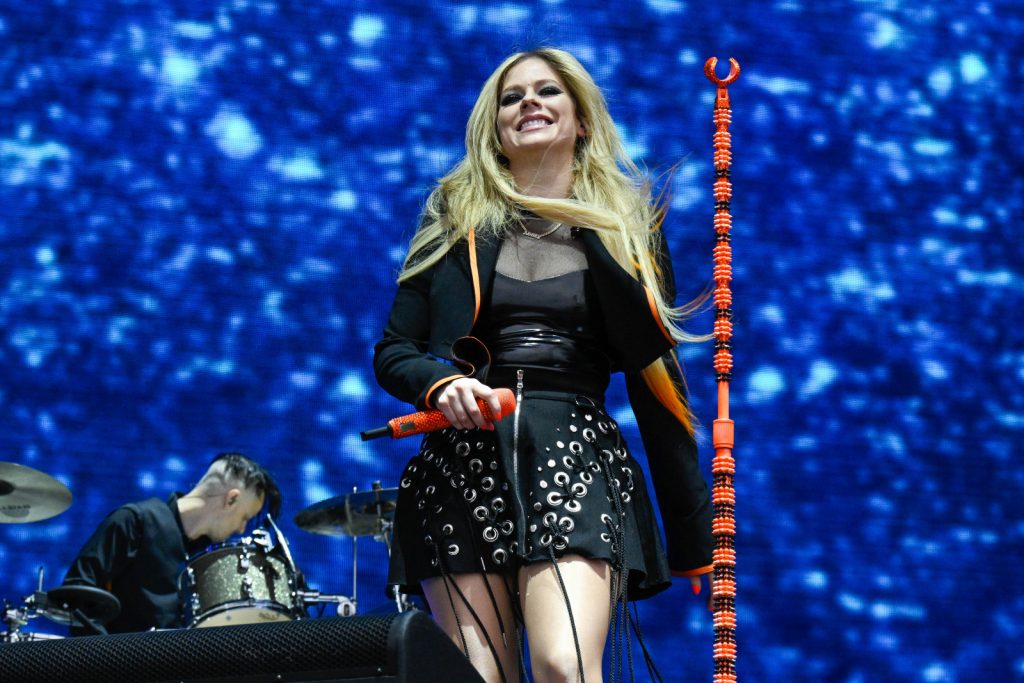 Avril Lavigne (Photo by Astrida Valigorsky/Getty Images)
Avril Lavigne (Photo by Astrida Valigorsky/Getty Images)
An unsung queen to queer folk growing up in the early 2000s, Canada’s pop-punk princess kicked into the mainstream music scene in the most audacious way and in a manner that female artists of the time wouldn’t dare. Lavigne’s Sk8er Boi was a cultural reset and broke the mould for female artists: Wearing baggy Dickies and a plaid tie while still singing about angsty boy problems.
From this, a new type of gay coined “Avril gay” has also made its way into LGBTQIA+ lexicon. There are Britney gays, Madonna gays, Princess Diana gays, even Bette Midler gays. Avril Lavigne was the sweet spot for those realising, “I like boys and girls” and even transcended feminisit archetypes into the realm of a queer icon.
She’s so major: Lena Waithe (she/her)
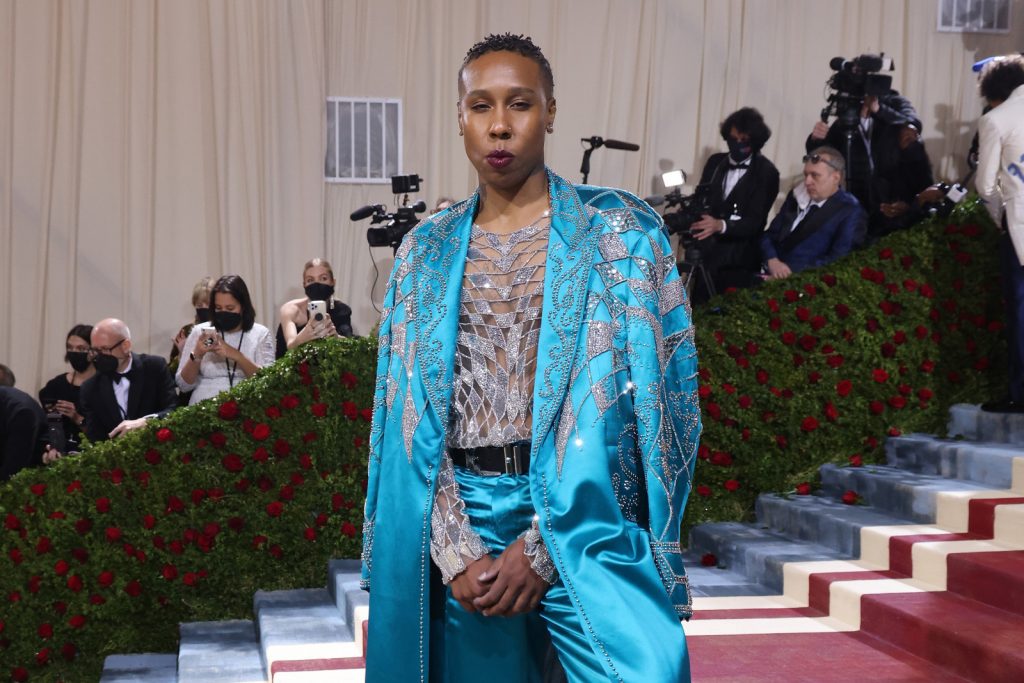 Lena Waithe attends. (Photo by Taylor Hill/Getty Images)
Lena Waithe attends. (Photo by Taylor Hill/Getty Images)
Everyone knows how notoriously tough it is to break into Hollywood (mostly from the perspective of cishet people). Despite this, Lena Waithe, a masculine-presenting lesbian, is a major Hollywood producer and director of the Emmy-winning Master of None, Them, and the critically acclaimed Queen and Slim.
Waithe’s intersectional identity makes her a champion of the black LGBTQIA+ community, making space and giving room to black gay women who are especially marginalised across industries. Her work is unapologetic about who she casts, her stories are semi-autobiographical and speak volumes to the shared lived-experiences and traumas familiar to so many young queer folk (which some have also criticised her for).
Androgynous Icon: Caster Samenya (she/her)
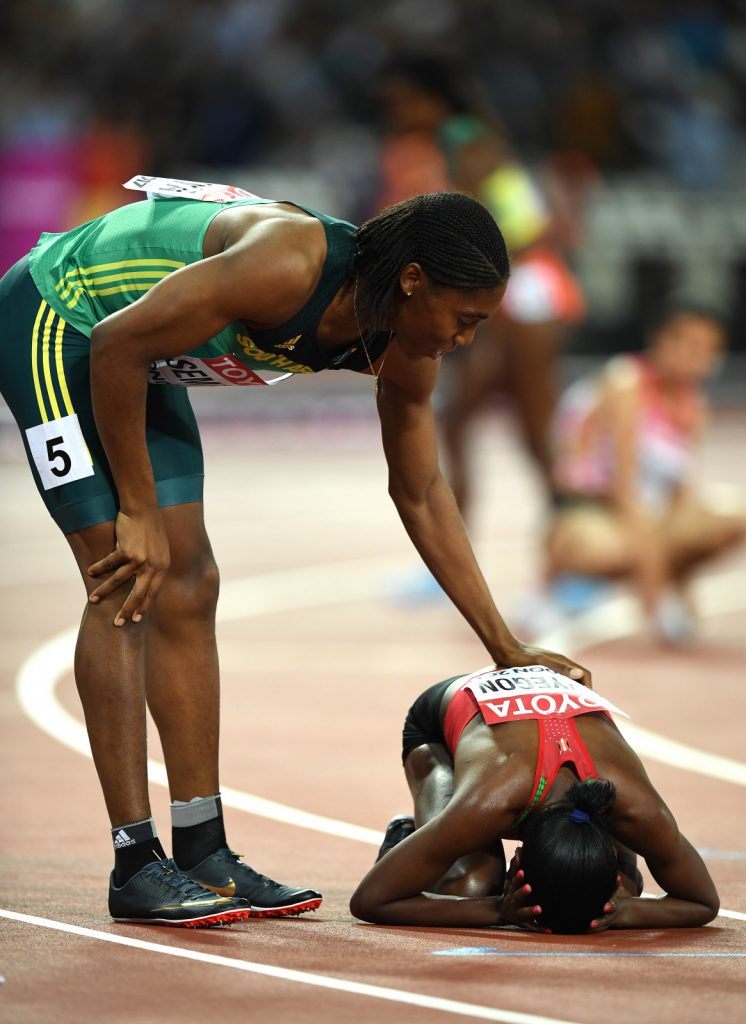 Caster Samenya (Photo by Matthias Hangst/Getty Images)
Caster Samenya (Photo by Matthias Hangst/Getty Images)
“I am a women and I am fast,” is Caster Semenya’s response to the IAAF’s unfair ruling that obviously targeted Samenya (in the shadows of white, cis-gendered, European competitors who feel threatened by a successful female athlete).
An award-winning sport icon, wife and record breaker, she fights against gender norms. Semenya is South Africa’s intersex icon who identifies as a woman. In parallel to her successful racing career, she has constantly to answer to the age-old theme for intersex bodies: To [irreversibly] alter their bodies to acheive the approval of authority. Anti-intersex and anti-trans retoric is nothing new to sport, but Semenya continues to thrive on and off the track in light of patriarchal scrutiny.
Smooth Transition: Elliot Paige (he/they)
When Elliot Paige came out that he is transgender in 2020, saying “I love that I am trans. And I love that I am queer”, they became one of the most famous and celebrated trans people to date. Despite being aware of their privilege as a white man with a large platform, Paige still uses his moment to highlight the harsh realities of living as a transgender person, especially for black and Latinx trans women.
Paige stars in the Netflix show The Umbrella Academy and his transition into his authentic self from season one to season three shows. After hitting prominence since appearing in the movie, Juno, Paige exudes realness and shines a promising light on changing attitudes that celebrate queer folk coming into their own.
District Six Drag: Kewpie (she/her)
South Africa is home to some of the most legendary queer icons that you’ve never heard of, but that doesn’t make them any less iconic. Kewpie was ahead of her time, living in Cape Town’s District Six from 1942 until her death in 2012, according to the District Six Museum.
Nightlife is where so many of us — queer and non-queer alike — flourish. Kewpie was not excluded from the gag and glamour of nightlife, but her day job at a salon in District Six doubled as the place for an extravaganza eleganza for drag pageants in the 1950s. Kewpie was the Daughter of District Six. Her unapologetically progressive body politics make her a queer icon with a legacy of the historic neighbourhood with exhibits curated in her honour to this day that invite you to bring your most fabulous self in celebration of her life.
The Fashun Icon: Billy Porter (he/him)
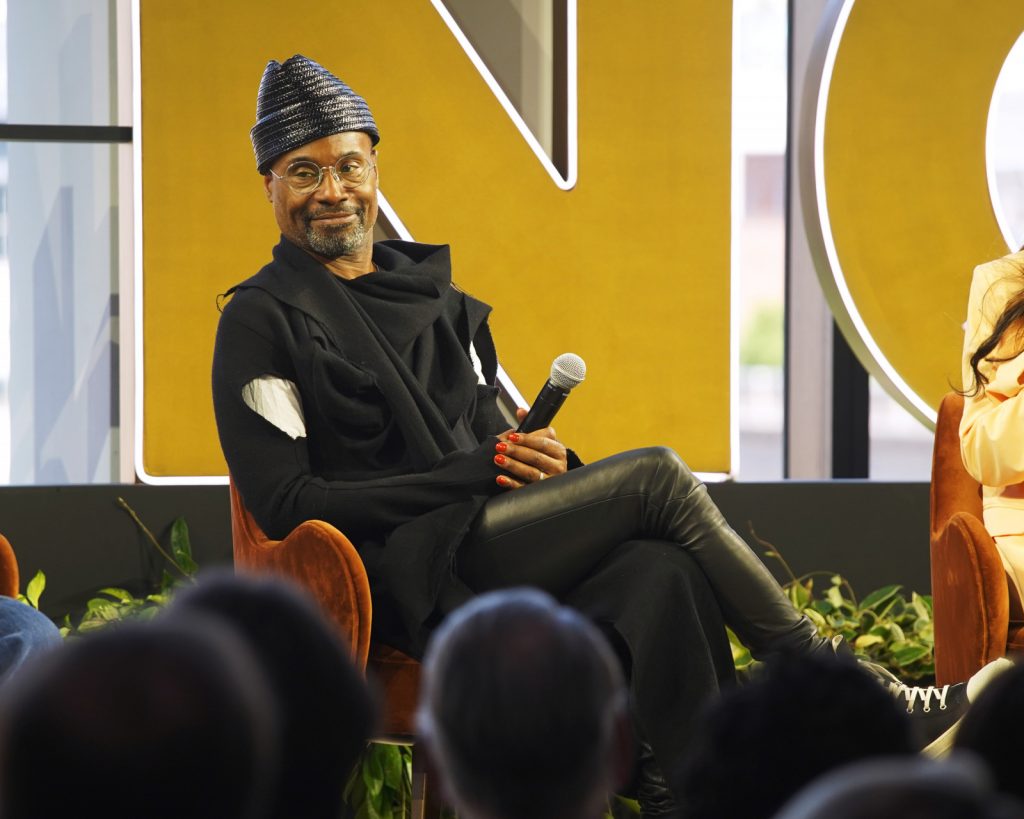 Billy Porter speaks onstage at the Global Citizen NOW Summit at Spring Studios. (Photo by Rob Kim/Getty Images
Billy Porter speaks onstage at the Global Citizen NOW Summit at Spring Studios. (Photo by Rob Kim/Getty Images
Remember when Billy Porter debuted a tuxedo gown by Christian Siriano on the red carpet of the 2019 Oscars? Of course you do.
As an Emmy Award winner star of Pose and Tony Award-winning thespian of Kinky Boots, Porter always has something to say through his fashion choices, always serving queer realness on stage and on the red carpet. Porter’s commitment to inclusivity and empowerment throughout his personal life and career through clothes has cemented him as a contemporary fashion icon.
When Porter put on a pair of heels for the first time in Kinky Boots, that is when he says he felt most masculine. He says that fashion has the ability to touch people in the most unique way, And Billy Porter serves every time.
Ashlee Marie Preston (she/her)
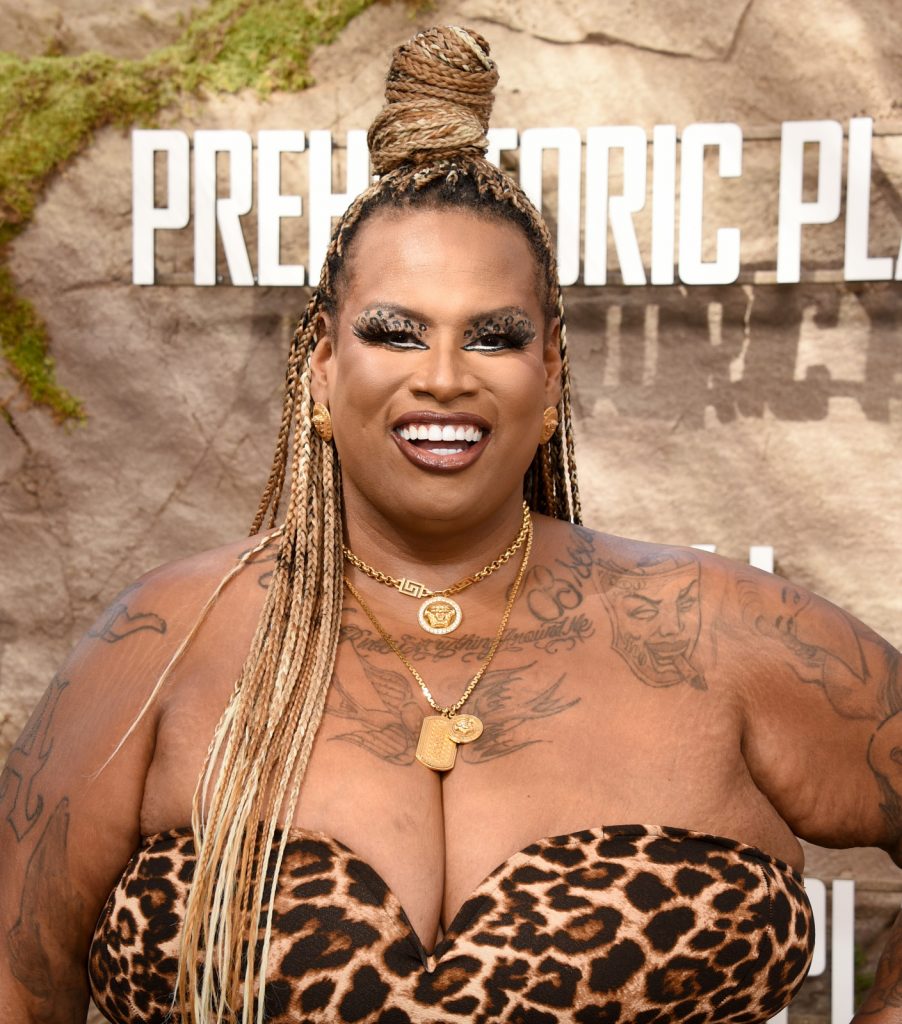 Ashlee Marie Presto (Photo by Gregg DeGuire/Getty Images)
Ashlee Marie Presto (Photo by Gregg DeGuire/Getty Images)
In the fight against the Transmisogynoir (transgender misgogyny), Ashlee Marie Preston is the embodiment of the multi-hyphenate reality that so many of us live. As the former editor in chief of Wear Your Voice Magazine, Preston is the first openly trans person to run for a US government position.
Preston is not afraid to throw shade at those who do trans people wrong, most recently at Netflix: “As society continues mocking, marginalising and murdering trans people, only for Netflix to exploit that pain for profit […] and it’s only Tuesday”.
Her story is the lived experiences all to familiar to those in marginalised groups who navigate gender expression, gender dysphoria, as well as survival sex work. Black trans women continue to be at the forefront of queer liberation and Preston is the radical truth story-teller fighting for those oppressed by the transmisogynoir.
Radical Love: bell hooks (she/her)
The intersectional feminist who wrote love letters to us all in her red-covered book All About Love: New Visions, Bell Hooks’ writing shouts (in the most gentle way) all things self-love as the focal point for finding your own voice in this noisy patriarchal world.
Hooks self-identified as “Queer-pas-gay”. “Pas” makes reference to the French term for “not” to identify as a part of the queer community as “not who you’re having sex with, but being at odds with everything around [being queer] it”. Her writing is required reading for anyone learning about feminism from a place of inclusivity, tenderness and authentic love for anyone across the gender spectrum.
Hooks’ writing is academic in style, yet certainly readable to anyone in pursuit of coming into their own, authentic self.